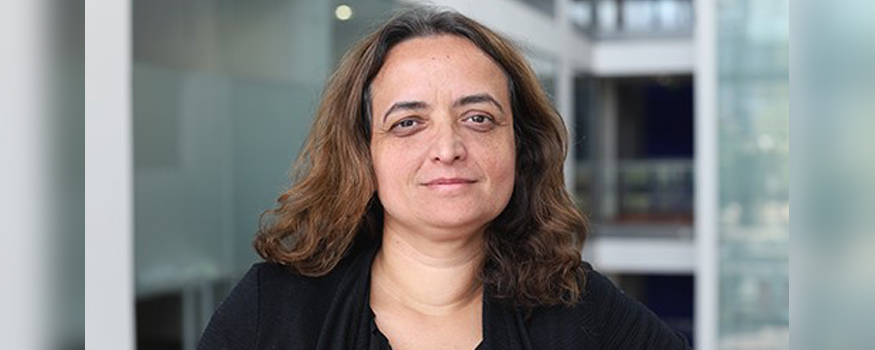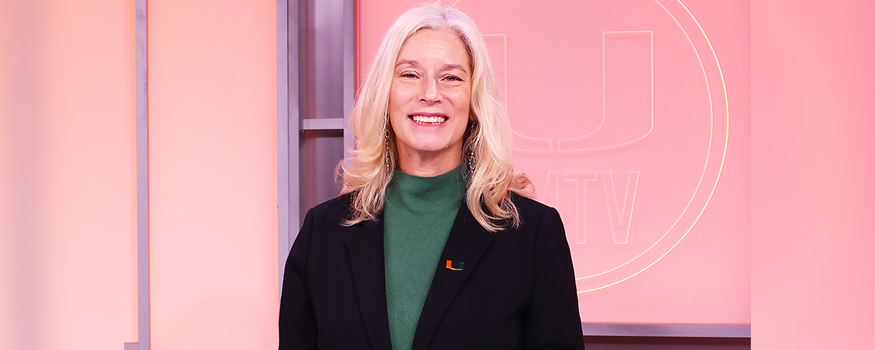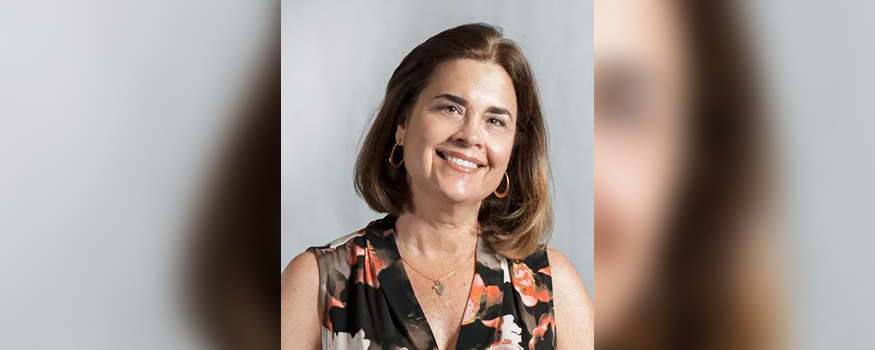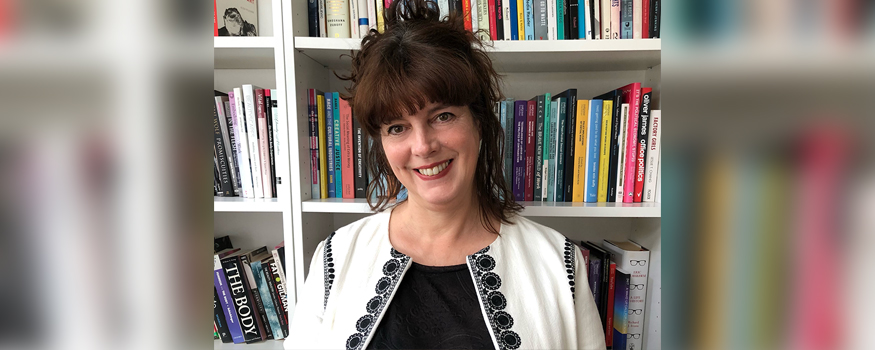To this day, women globally are subjected to forms of control over their bodies and, in particular, their ability to exercise their reproductive rights is still constrained. Amid a rise of challenges to the advancement of women’s rights, including the recent overturning of Roe v. Wade in the United States, sexual and reproductive health rights are at the forefront of conversations about the advancement of gender equality. To address these issues, the University of Miami School of Communication is hosting a panel titled “How Women and Health NGOs Use Communications Strategically to Advocate for Gender Equality and Reproductive Health.”
“Communication advocacy has great potential to address the serious health challenges of our time. This panel offers an opportunity to leverage the insights from Dr. Carolina Matos’ research as we consider how contemporary strategic interventions benefit women’s health, as well as navigate challenges in their work,” said Karin Wilkins, dean of the School of Communication.
Visiting scholar, Carolina Matos, Ph.D., will present her research findings and core theoretical frameworks from her upcoming book, “Gender, Communications and Reproductive Health in International Development.”
“Many organizations are still waking up to the importance of using media and communications strategically for advocacy around sexual and reproductive health and rights. The discussions around sexual and reproductive health are also shown to occur very much among those ‘in the know,’ with some organizations still ‘preaching to the converted’ or talking in their own ‘echo chambers,’” said Matos.
The results of her research assert the need to deconstruct discourses around sexual reproductive and health rights (SRHR) under challenging times and conclude that NGOs need better communication strategies and practices in their advocacy communication efforts. The project was funded by the Global Challenges Research Fund (GCRF).
“There is though general acknowledgement and attempts are being made to make health messages on SRHR more attractive with a combination of facts on public health arguments and with the use of creative devices that appeal to emotions and human-interest concerns in order to bring more people into the conversation. This is certainly still a challenge for many organizations working within what is a currently challenging political and economic context across much of the world, from the U.S. to Latin America, to Eastern Europe,” she added.
The panel will be moderated by Sallie Hughes, professor and associate dean for global engagement. Panelists include Karin Wilkins, dean of the School of Communication; Suzanne Clisby, professor from the University of Coventry, UK; Rosalind Gill, professor from the City, University of London; and Margarita Diaz, CEO of Reprolatina.
The panel is set to open with an introduction by Hughes on the School of Communication , followed by a brief presentation of Matos’ work, and then commentary and interventions by the panel. Audience members are invited to participate in a Q&A forum following the panel’s discussion.
“The mission of our school includes producing evidence-based knowledge about important social issues from a communication perspective, as well as using communication research, creative work, and practice in support of positive social change from the ground up. We are therefore delighted that Dr. Matos will launch this important book, which exemplified our mission, at the School of Communication,” said Hughes.
The project examined fifty-two feminist and health NGOs from across the world and how they are improving discourse on sexuality and reproductive health in the public sphere. The research adopted a mixed-methods approach which included in depth interviews with gender experts and practitioners, as well as a survey-style questionnaire with communications experts, critical discourse analysis of the institutional websites of the organizations, and content analysis of their social media engagement and presence.
This large research project investigated how communications can be better used for advocacy on SRHR. It also included the participation of early career researchers from the U.K., India, and Brazil. The researchers investigated how these organizations are making use of communications amid various contemporary challenges, including the proliferation of misinformation about women’s rights and health in the public sphere due to the actions of oppositional far-right conservative groups.
In the book, Matos unpacks the complexities of the relationship between women’s health, communications, and development. The work contributes to the fields of international development, health communications, and gender studies, and further advances the debate on the role of feminist NGOs in advocating for women’s rights. With a postcolonial critique of the role of NGOs in development, Matos illuminates the strategic use of communications in the mediation and advocacy of gender equality and reproductive health.
The panel is set for April 19, 10 a.m.-1p.m., at the School of Communication Center for Communication, Culture, and Change.
Panelist Bios
Karin Wilkins, dean of the University of Miami School of Communication
Karin Wilkins is dean of the School of Communication at the University of Miami. Before coming to UM in Sept. of 2019, she was associate dean for Faculty Advancement and Strategic Initiatives with the Moody College of Communication at the University of Texas at Austin. She has won numerous awards for her research, service, and teaching, and chaired the Intercultural/Development Division of the International Communication Association. Her work addresses scholarship in the fields of development communication, global communication, and political engagement. Her latest book, “Prisms of Prejudice,” examines the role various forms of media have in proliferating beliefs that give rise to discrimination against U.S. Arab and Muslim communities.
Carolina Matos – visiting associate professor in Global Communications, University of Miami School of Communication, and senior lecturer in Media and Sociology at the Department of Media, Culture and the Creative Industries, City, University of London
Carolina Matos is a senior lecturer in Media and Sociology at the Department of Media, Culture and Creative Industries of the School of Communications and Creativity at City, University of London. Matos is the author of various books, papers, and articles focusing her research in the areas of media, gender, and development. She is also program director of the Masters in Media and Communications and International Communications and Development.
Sallie Hughes – professor of Journalism and associate dean of Global Engagement, University of Miami School of Communication
Sallie Hughes is a professor in the Department of Journalism and Media Management and associate dean for Global Initiatives. She was senior research lead and faculty director at the University of Miami Institute for Advanced Study of the Americas from 2016-2021. She coordinates the Latin American region of the Worlds of Journalism Study, the largest cross-national study of journalists’ working conditions. She is the author of “Newsrooms in Conflict: Journalism and the Democratization of Mexico” and co-author of “Making a Life in Multiethnic Miami: Immigration and the Rise of a Global City,” among others.
Rosalind Gill – professor of Cultural and Social Analysis, Department of Media, Culture and the Creative Industries, City, University of London, UK
Rosalind Gill, professor, studied Sociology and Psychology at Exeter University, and completed her Ph.D. in Social Psychology at the Discourse and Rhetoric Group (DARG), Loughborough University in 1991. With an interdisciplinary background, she has worked across a number of disciplines including sociology, gender studies, and media and communications. Gill is known for her research interests in gender and media, cultural and creative work, and mediated intimacy. For the last decade, she has made a significant contribution to debates about the sexualization of culture.
Suzanne Clisby – professor of Gender Studies at the University of Coventry, UK
Suzanne Clisby is professor of Gender Studies in the Centre for Global Learning, Education and Attainment at Coventry University. She is currently co-director of the Research Councils UK (RCUK) GCRF Global Gender and Cultures of Equality (GlobalGRACE) Project. She was the director of the Horizon 2020 Marie S. Curie Gender and Cultures of Equality in Europe (GRACE) Project from 2015 to 2019. Clisby is an expert advisor for the European Union-funded GEMMA programme and the GCRF-funded None in Three Project. She is also an editor of the “Journal of Gender Studies.”
Margarita Diaz – president and CEO of Reprolatina
Margarita Diaz is president and CEO of Reprolatina, an NGO based in Campinas, Sao Paulo, Brazil. Diaz is an obstetrician nurse who graduated from Chile with a masters and doctorate in education from Unicamp in Brazil. She runs the NGO with Francisco Cabral, vice-president of Reprolatina and psychologist. The NGO works with sexual and reproductive health and rights in Brazil and in other countries in Latin America and the Caribbean.











